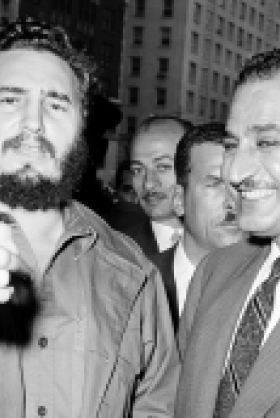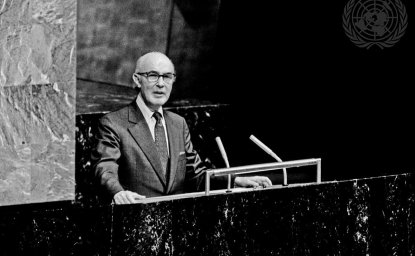Egypt and the Cuban Missile Crisis




This NPIHP Working Paper features essays written by Hassan Elbahtimy and James G. Hershberg that examine the role of Egypt in the politics and diplomacy of the October 1962 Cuban Missile Crisis. Benefiting from Elbahtimy’s deep expertise in Egyptian nuclear history and Hershberg’s long-standing interest and numerous publications on the Cuban Missile Crisis, the two papers seek to address unanswered questions relating to how Egypt and its government led by President Gamal Abdel Nasser perceived and reacted to the crisis, particularly at the United Nations, in the context of the Cold War and the advent of the Non-Aligned Movement (NAM). The papers draw on a range of primary sources from Egypt, the United States, the United Nations, the Soviet Union, and elsewhere, materials which provide new insights and information on Cairo’s experience of the crisis.
Authors


Professor of History and International Affairs at George Washington University

Nuclear Proliferation International History Project
The Nuclear Proliferation International History Project is a global network of individuals and institutions engaged in the study of international nuclear history through archival documents, oral history interviews, and other empirical sources. Read more


History and Public Policy Program
A global leader in making key archival records accessible and fostering informed analysis, discussion, and debate on foreign policy, past and present. Read more


Cold War International History Project
The Cold War International History Project supports the full and prompt release of historical materials by governments on all sides of the Cold War. Read more

Explore More
Browse Insights & Analysis
NPIHP Working Paper Series


